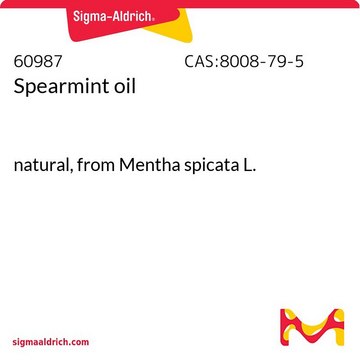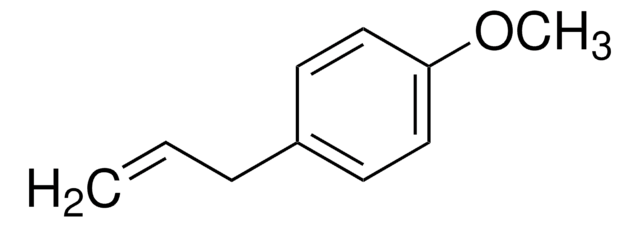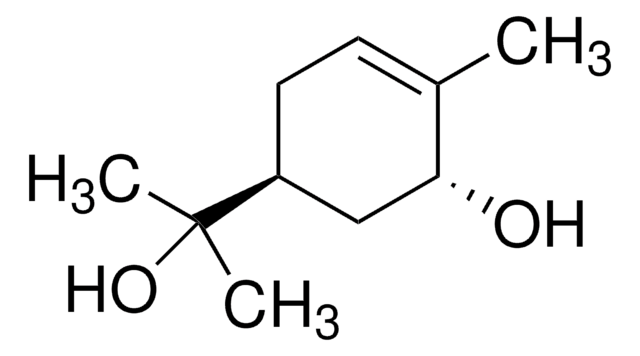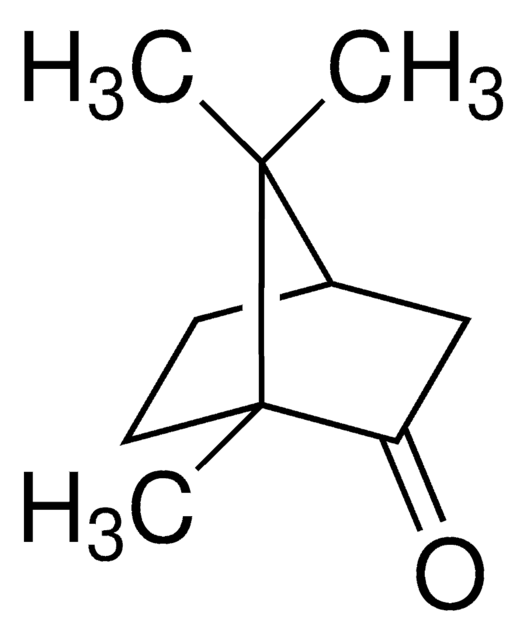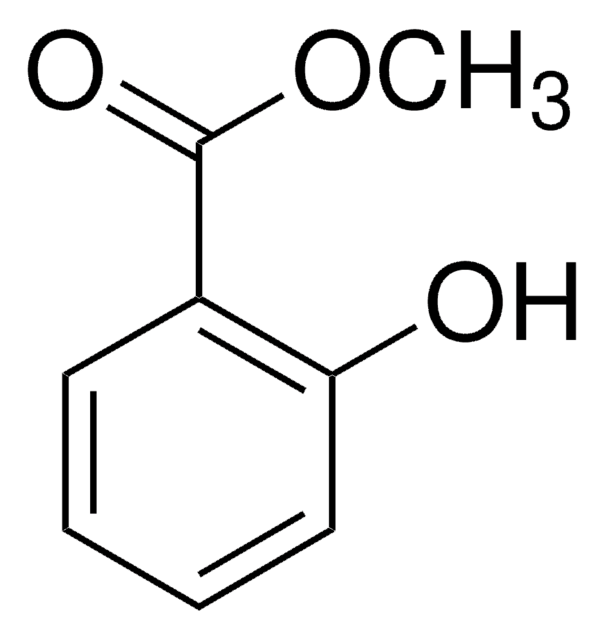All Photos(1)
About This Item
Organoleptic:
green; spicy
grade:
FG
natural
natural
food allergen:
no known allergens
Recommended Products
grade
FG
natural
Quality Level
reg. compliance
EU Regulation 1334/2008 & 178/2002
FDA 21 CFR 117
FDA 21 CFR 182.20
composition
Methyl chavicol, ≥80%
refractive index
n20/D 1.515
density
0.961 g/mL at 25 °C
application(s)
flavors and fragrances
Documentation
see Safety & Documentation for available documents
food allergen
no known allergens
Organoleptic
green; spicy
Looking for similar products? Visit Product Comparison Guide
Signal Word
Warning
Hazard Statements
Precautionary Statements
Hazard Classifications
Acute Tox. 4 Oral - Eye Irrit. 2 - Skin Irrit. 2 - STOT SE 3
Target Organs
Respiratory system
Storage Class Code
10 - Combustible liquids
WGK
WGK 3
Flash Point(F)
179.6 °F
Flash Point(C)
82 °C
Choose from one of the most recent versions:
Already Own This Product?
Find documentation for the products that you have recently purchased in the Document Library.
Chiou Ling Chang et al.
Journal of economic entomology, 102(1), 203-209 (2009-03-04)
Basil oil and its three major active constituents (trans-anethole, estragole, and linalool) obtained from basil (Oscimum basilicum L.) were tested on three tephritid fruit fly species [Ceratitis capitata (Wiedemann), Bactrocera dorsalis (Hendel), and Bactrocera cucurbitae (Coquillett)] for insecticidal activity. All
A Singh et al.
Food and chemical toxicology : an international journal published for the British Industrial Biological Research Association, 37(6), 663-670 (1999-09-09)
The present study was designed to elucidate the mechanistic inhibitory efficacy of clocimum (an eugenol rich variety of Ocimum gratissimum; Labiatae) oil on murine skin papillomagensis. Topical application of clocimum oil (50 microl/animal/day) during peri-initiation stage (1 week before and
Saima Amin et al.
Pharmaceutical development and technology, 13(6), 533-539 (2008-08-23)
The effect of penetration enhancers like tulsi (basil) oil, eucalyptus oil, clove oil, black cumin oil, oleic acid and Tween 80 on the percutaneous absorption of model lipophilic drug-carvedilol was investigated using excised rat abdominal skin. Transdermal flux, permeability coefficient
V M Androsova
Tsitologiia, 28(9), 1030-1031 (1986-09-01)
Eugenol basil oil and eugenol are proposed as solvents of dye-stuffs in combined histological staining. These two substances were found to be of full value and more available substitutes of the oil of cloves.
M C Courrèges et al.
Fitoterapia, 73(5), 369-374 (2002-08-08)
The effect of basil oil on the phagocytic capability and respiratory burst response of mouse peritoneal macrophages was studied. The oil inhibited the phagocytosis of opsonized sheep erythrocytes. This inhibition was both dose- and time-dependent and reverted 24 h after
Our team of scientists has experience in all areas of research including Life Science, Material Science, Chemical Synthesis, Chromatography, Analytical and many others.
Contact Technical Service